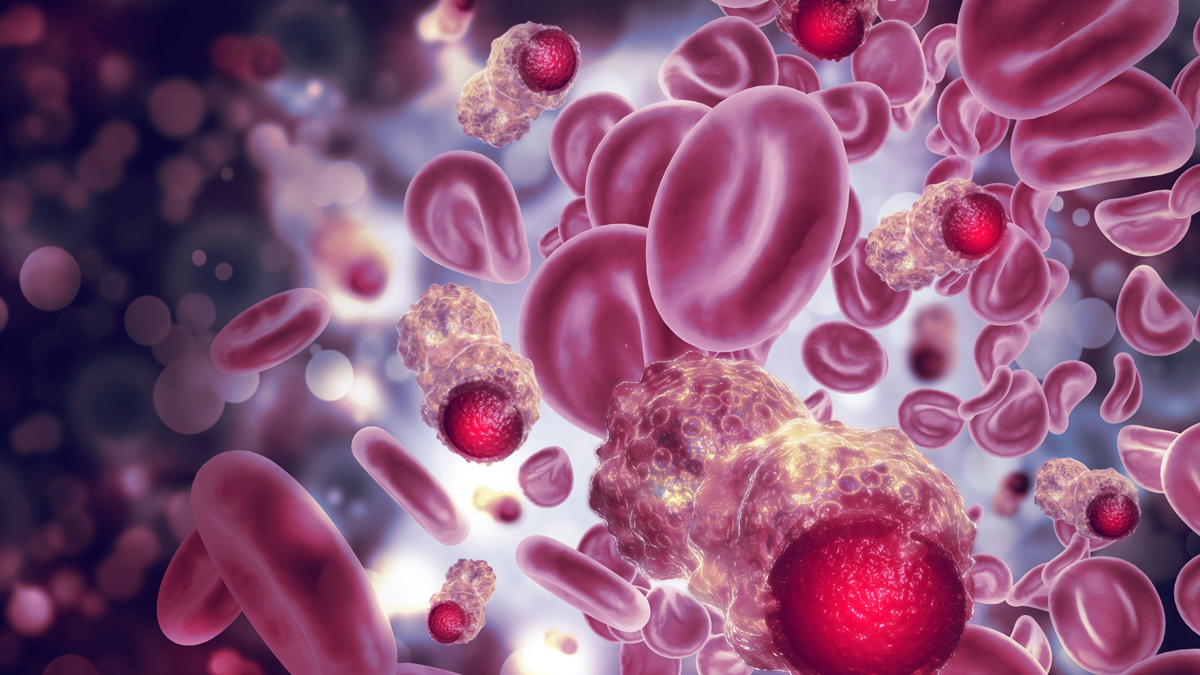Advantage J&J in multiple myeloma CAR-T tussle with BMS

Johnson & Johnson and partner Legend Biotech are celebrating a big win in their efforts to expand the use of CAR-T therapy Carvykti for multiple myeloma, after showing a survival benefit in a phase 3 trial.
The result – from the CARTITUDE-4 study in patients previously treated with between one and three prior lines of therapy – will give the companies a leg-up in their rivalry with Bristol-Myers Squibb in the market for BCMA-directed CAR-T therapies for the blood cancer.
Carvykti (ciltacabtagene autoleucel) is already approved as a second-line or later treatment for multiple myeloma based on data showing it could reduce the risk of disease progression or death by 59% compared to standard therapies, reaching that milestone ahead of BMS’ Abecma (idecabtagene vicleucel), which is currently approved as a third-line or later therapy and has yet to show a survival benefit.
Having overall survival (OS) data in hand extends J&J’s lead over its rival in the anti-BCMA CAR-T category, which is also being seen in sales terms. Carvykti pulled in $157 million in the first quarter of this year, double the amount for the same period of 2023, while first-to-market Abecma slid 44% to $82 million.
CARTITUDE-4 showed a “statistically significant and clinically meaningful” improvement in OS compared to a pair of standard treatment regimens based on either Takeda’s Velcade (bortezomib) or J&J’s Darzalex (daratumumab) alongside BMS’ Pomalyst (pomalidomide) and dexamethasone.
Carvykti "is now the first cell therapy to significantly improve overall survival versus standard of care for patients with myeloma as early as second line,” commented Jordan Schecter, who heads up the multiple myeloma unit at J&J.
He added that the results “add to the growing body of evidence across our portfolio of differentiated, complementary therapies that attack the disease in different ways throughout the course of a patient’s journey.”
J&J has said the updated CARTITUDE-4 results will be presented at an upcoming medical meeting and submitted to regulatory authorities worldwide.
The CAR-T therapies – which require an intricate therapeutic process that involves harvesting, modifying, and re-infusing cells – are, however, facing serious competition from off-the-shelf alternatives, like BCMA-targeting bispecific antibodies and antibody-drug conjugates (ADCs).
One such rival is GSK’s Blenrep (belantamab mafodotin), an ADC that showed impressive data as a second-line therapy for multiple myeloma in a phase 3 trial reported at this year’s ASCO, including a 48% improvement in progression-free survival.
There was also a 23% improvement in OS with GSK’s drug, which hadn’t reached statistical significance at that readout, but is being monitored to see if it does so later.
Blenrep won accelerated FDA approval in 2020 as a fourth-line or later treatment for multiple myeloma, but was withdrawn from sale following the failure of a confirmatory study. GSK is now hoping to return it to market as an off-the-shelf, outpatient treatment that could mount a significant challenge to the CAR-T options.
Other drugs muscling into multiple myeloma include J&J’s Tecvayli (teclistamab) and Pfizer’s Elrexfio (elranatamab) - two BCMAxCD3 bispecifics already approved for later-line use, but in testing to move forward in the treatment pathway, as well as Regeneron’s bispecific linvoseltamab, which is heading for an FDA decision in August.
Last year, the FDA launched an investigation into the risk of secondary cancers in patients treated with BCMA- or CD19-targeted CAR-Ts, and now requires a boxed warning on their labels.













